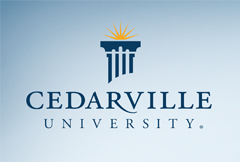Keywords
Ethics, children, personhood
Abstract
One out of every six married couples experiences infertility at some point in their relationship. Most couples expect and desire to conceive children, and thus fulfill their “procreative duty.” However, this desire is interrupted by the pain of childlessness. Modern technology has responded through procedures such as artificial insemination or in vitro fertilization (IVF). If these technologies are successful, the result is procreation, and alleviation of human suffering. While this may appear wonderful on a surface level, it does raise questions of whether we have correctly defined procreation. Our culture and consumerist attitude has altered the God-intended views of procreation and the way in which we approach child bearing. This paper will discuss procreative purposes in the light of Genesis, the relevance of the biblical commands today, how reproduction differs from procreation, and how reproductive technologies have affected societal views towards child bearing and the resulting shift towards a product oriented society.
DOI
10.15385/jce.2013.12.2.2
Recommended Citation
Dykstra, Leanne N.
(2013)
"Having Babies: Personhood or Product?,"
CedarEthics: A Journal of Critical Thinking in Bioethics: Vol. 12:
No.
2, Article 2.
DOI: 10.15385/jce.2013.12.2.2
Available at:
https://digitalcommons.cedarville.edu/cedarethics/vol12/iss2/2
Creative Commons License

This work is licensed under a Creative Commons Attribution-Noncommercial-No Derivative Works 3.0 License.
Disclaimer
The CedarCommons repository provides a publication platform for fully open access journals, which means that all articles are available on the Internet to all users immediately upon publication. However, the opinions and sentiments expressed by the authors of articles published in our journals do not necessarily indicate the endorsement or reflect the views of Digital Services, the Centennial Library, or Cedarville University and its employees. The authors are solely responsible for the content of their work. Please address questions to the Digital Services staff.
Copyright
© 2013 Leanne Dykstra. All rights reserved.
